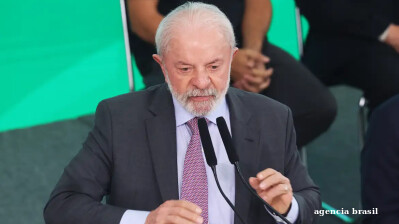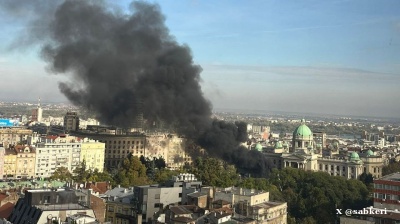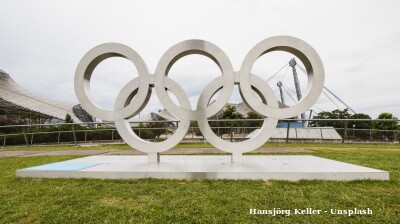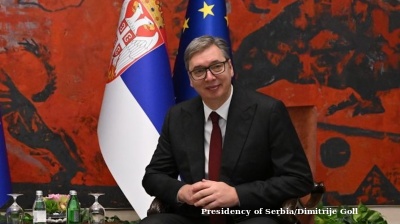President Volodymyr Zelenskiy travelled to Denmark and France on September 3 to meet with leaders from 35 countries that make up the coalition of the willing (COW) and discuss the need for strong measures to pressure Russia to negotiate an end to the war.
The summit brought together leaders from Europe, Australia, Japan and Canada, as well as Zelenskiy and United States envoy Steve Witkoff.
Under discussion are possible security guarantees and the number of peacekeepers the COW countries could commit to maintain the peace if a ceasefire is called. US president Donald Trump has refused to commit troops, and has been vague on what military resources he could contribute to any mission in Ukraine. Russia flatly refuses to accept Nato-backed boots on the ground in Ukraine, under any circumstances.
Spearheaded by France and the United Kingdom, the COW leaders are hoping to do enough to persuade Trump to back their efforts. Earlier at a meeting for EU foreign ministers in Copenhagen last week, the delegates admitted that their efforts remain dependent on US backing.
The leaders of Nordic-Baltic Eight issued a joint statement urging more rapid provision of military aid to Ukraine and the strengthening of sanctions against Russia and its allies. They highlighted that Moscow is deliberately delaying peace talks while escalating its violent attacks, including strikes on Ukrainian civilians.
Despite the upbeat rhetoric and a strong show of solidarity by many international leaders, the Paris summit was a failure insomuch as no genuine security guarantees were offer by the major powers committing themselves to coming to Ukraine’s military aid should it be attacked a second time by Russia. There was also no firm commitment on supplying troops to a mooted peacekeeping mission in any sizable number and the delegates remain dived over the issue. There were vague promises of supplying Ukraine with long-range missiles but no firm commitments. There were more concrete commitments to building up the Armed Forces of Ukraine (AFU), however, as bne IntelliNews reported, Europe will struggle to pay for the Ukraine war.
Most importantly of all, even the delegates in Paris admitted that their plan won’t work unless they receive a US backstop, and US President Donald Trump has made no firm commitments, nor indeed taken any action to pressure Russian President Vladimir Putin at all since taking office.
French President Emmanuel Macron and several other top leaders called Trump after the discussions were concluded, and a response from the White House is expected in the coming days.
US help
American backing for anything the COW decides is key to the success of bringing the conflict to an end. But while Kyiv intensifies its dialogue with partners in Paris, Trump continues to make meaningless statements but takes no action, UBN reports. Trump told journalists the day before that he is “closely monitoring” the situation and has learned "interesting things" about Russia's war against Ukraine, promising to reveal them soon, but gave no details.
He also mentioned that Ukraine and Russia lost 7,313 soldiers over the past week and expressed his desire for the conflict to end. The US president further noted that the US will change its stance on Russia if there is no progress in resolving the war with Ukraine and expressed “disappointment” with Putin for not ceasing his aggression against Ukraine in a radio interview.
Despite Trump’s promise during the Alaska summit on August 15 and again at the White House summit three days later that Zelenskiy and Putin might meet in either a bilateral or trilateral format “soon” those negotiations appear to have stalled.
The Ukrainian Foreign Ministry noted that Russia's statements and actions indicate a lack of genuine interest in ending the war and dismissed efforts by Trump for peace.
As bne IntelliNews reported, Trump seems uninterested in increasing pressure on Putin to come to the negotiating table. Since taking office at the start of this year, he has cut off all financial aid to Ukraine and imposed no new sanctions whatsoever, letting at least four “two weeks more” deadlines slide passed without action. During the Anchorage summit he even backtracked on his own suggestion of calling an unconditional 30-day ceasefire, and instead switched to back Putin’s call to start peace talks that address the “root causes” for the conflict instead that reflect the “realities on the ground.” In addition, Trump talked about clearing the way for US oil major ExxonMobil return to the Sakhalin-1 oil project as well as restarting the Cold War-era missile agreements that have little to do with Ukraine. The US delegates have made it plain that they are more interested in doing business with Russia than they are in bringing about an end to the fighting.
Security guarantees and peacekeepers
The success of a peace deal will turn on providing strong security guarantees. While Trump has taken Ukraine’s Nato membership off the table, Italy’s Prime Minister Giorgia Meloni suggested in March a Nato-lite option of real bilateral agreements with European powers to provide military support in the event of a second invasion.
Similar security deals were agreed during the failed 2022 Istanbul peace deal but were later rejected by former UK Prime Minister Boris Johnson which caused the peace agreement to collapse.
However, Meloni’s suggestion seems to have been dropped and replaced with a commitment to sending Nato-backed peacekeepers to Ukraine instead in lieu of a genuine security guarantee.
As bne IntelliNews reported peacekeepers are not a security guarantee per se as Nato-backed troops will very likely not be allowed to fire on Russian troops, but the confusion equating a European military force with security guarantees persisted throughout the summit.
The idea of peacekeepers was originally floated by French President Emmanuel Macron but dropped in April as unworkable. However, as Europe has few other options if it refuses the Italian suggestion of military support agreements, the now renamed “reassurance force” was back on the agenda.
Nato chief Mark Rutte insisted at the meeting that Russia does not have a say on any deployment of troops in Ukraine.
“Why are we interested in what Russia thinks about troops in Ukraine? It’s a sovereign country. It’s not for them to decide,” he said, reports Aljazeera. “If Ukraine wants to have security guarantee forces in Ukraine to support a peace deal, it’s up to them. Nobody else can decide about it,” Rutte said during a visit to Prague.
European Commission President Ursula von der Leyen has advocated for turning Ukraine into a "steel porcupine" that can’t be attacked by Russia.
"In Paris for a crucial meeting of the Coalition of the Willing on security guarantees. We have been working on 3 core tasks. Turning Ukraine into a steel porcupine. Building a Multinational Force for Ukraine backed by the US. Reinforcing Europe’s defence posture. Let’s now move forward.," she wrote on the social network X.
Berlin pledged to be part of a European "decisive contribution to strong security guarantees" for Ukraine once a negotiated solution has been reached, Merz also equated that with just building up the AFU. "The focus must be on financing, arming, and training the Ukrainian armed forces. Germany is now Kyiv's most important partner in this regard."
Macron said after the summit that “security guarantees” would involve above all “commitments to rebuild and bolster Ukraine's armed forces.” However, this is to confuse the term security guarantees again, which only relate to one country coming to the aid of another if it is attacked. Ukraine increasing the size and power of its military is not a security guarantee that France can offer. It is simply a “security assurance” that Ukraine has already received from its allies.
Macron, speaking alongside Zelenskiy in Paris, repeated the formula during the summit.
“We are ready, us Europeans, to provide security guarantees to Ukraine for when there is a signed peace,” Macron said. So far, only France and the UK have publicly committed to sending troops to Ukraine, although Macron claims a total of 26 countries are willing to send men, Reuters reports. British and French army chiefs were due to brief the leaders at the summit, according to an outline sent to attendees, according to Reuters.
Still, European leaders have made clear that any deal on troop deployment will only be feasible with a US “backstop”, which has yet to appear.
In addition, this idea remains a non-starter with the Kremlin which has explicitly said Nato-backed boots on the ground in Ukraine is “unacceptable” and if the EU commits to this idea, it will be a deal-killer before Russo-Ukraine negotiations even get underway. Russian Foreign Minister Sergey Lavrov said on August 30 that the actions of the coalition of the willing are aimed at undermining the emerging progress on the Ukrainian settlement following the Russo-American contacts.
Macron said he, fellow European leaders and Zelenskiy held a call with Trump after their summit and US contributions to the guarantees would be finalised in the coming days.
Because of these problems, the COW members are struggling to come to a consensus or draw up concrete plans for multinational deployments in Ukraine, Financial Times reports, citing people briefed on the discussions.
The coalition is roughly divided into three groups: one, including the UK and France, willing to send troops; one that opposes any military deployment, including Italy; and a majority that are still undecided, including Germany, the newspaper wrote.
Missiles
Another alternative, originally suggested by Ukrainian President Volodymyr Zelenskiy himself, is that Ukraine should supply its “own Nato” by beefing up the Armed Forces of Ukraine (AFU) to be able to hold Russia off.
His is in effect the Finlandisation option: after a defeat by the Soviet Union in the Winter War that started in November 1939 and ended three months later, the USSR annexed 10% of its territory and forced it to pay reparations. However, Finland went on to follow a strict neutrality policy and built up its military into a formidable force. Finnish President Alexander Stubb brought up this option as a possibility again in public remarks ahead of the Paris summit.
In Paris, the COW leaders said they are ready to supply Ukraine with more materiel and with long-range missiles in particular, according to a statement on the UK government's website released on September 4.
The US also recently signed off on a $825mn deal to supply Ukraine with thousands of Extended Range Attack Munition (ERAM) missiles that will be paid for by the Netherlands, Denmark and Norway.
In a virtual address from Glasgow, Prime Minister Keir Starmer said COW had “made an unbreakable commitment to Ukraine” with the support of the Trump administration and “it is now clear that they need to go further to put pressure on Putin to stop the fighting.”
"The Prime Minister also welcomed the statements by partners from the 'coalition of the willing' to supply Ukraine with long-range missiles to further strengthen its defence capabilities," the statement said.
However, the statement was short of details. The UK and France have almost depleted their stocks of the effective and powerful Storm Shadow missiles that went out of production 15 years ago. There was also no indication of if the unnamed partners includes Germany and its Taurus cruise missile. Berlin has so far flatly refused to supply Ukraine with its state-of-the-art missile that would be a game changer, despite lifting restrictions on their export in May.
Kremlin ready to meet
Putin has expressed readiness to meet Zelenskiy, but in Moscow – something that Bankova (Ukraine’s equivalent of the Kremlin) dismissed out of hand. Putin added that if an agreement isn’t reached, the conflict will be resolved “by force.”
Putin said that "if common sense prevails," an optimal solution to end the war could be found. Putin also noted, "especially given the current US administration's attitude and calls for solutions, there is light at the end of the tunnel. Otherwise, everything will need to be settled by military means."
The Kremlin leader said Ukraine was unwilling to pursue a peaceful resolution, asserting Russia "will never look helplessly at what is happening nearby."
During a press conference in China where Putin was attending the SCO summit, Putin repeated that Russia has never objected to Ukraine’s membership of the EU, but repeated that its membership of Nato was “unacceptable” for the Kremlin.
Putin also claimed that he did not raise the idea of exchanging security guarantees for Ukraine, which are high on the agenda at the Paris summit.
"We believe every country should have security guarantees and systems, including Ukraine. But this is unrelated to territorial exchanges," Putin said.
Earlier, Russian Foreign Minister Sergei Lavrov has said that the Kremlin is not against the West providing Ukraine with bilateral security guarantees, but any arrangement must include Russia as well.
Critics of Russia have dismissed Russia’s participation in any Ukrainian security guarantees as a ruse where Russia seeks a veto over any collective military response to a possible second invasion in the future. However, another interpretation is a security deal that includes Russia is part of what Putin refers to as the “root causes” of the conflict; in 2008 then President Dmitry Medvedev presented Brussels with a new pan-European security deal that included security guarantees for Russia. The Kremlin objected to the prevailing security arrangements that centred on Nato, which precluded Russia, making it a default
“enemy.”
Sanctions
Amongst the non-military measures on the table in Paris, the European allies discussed increasing the sanctions on Russia to force Putin to the negotiating table.
The EU recently voted through an eighteenth sanctions package and are already working on a nineteenth. However, as bne IntelliNews has extensively reported the sanctions regime has largely failed after Russia successfully rerouted its oil exports to Asia in just four months. Russia has economic problems but they are largely a result of overheating caused by massive military spending and not the effect of sanctions. The Central Bank of Russia (CBR) just released its Main Directions of the Single State Monetary Policy mid-term outlook report on September 3, which forecasts more economic pain for this year and next, but the Kremlin is still earning enough money to be able to continue the war for several years, based on its copious reserves.
Nevertheless, Ukraine’s Western allies believe that sanctions and the mounting Ukrainian missile strikes on Russian refineries will pressure Putin into peace negotiations this autumn. Analysts estimate that 15% to 20% of Russia’s fuel production has been knocked off line which has sparked a fuel crisis and shortages of petrol. However, leading oil analyst Sergey Vakulenko, an independent energy analyst, consultant to a number of Russian and international global oil and gas companies argued in a recent note that while the attacks were doing damage, they cannot do enough damage to make a difference to the war.
Ukraine’s use of missiles is new. Previously, Ukraine’s allies have tried to prevent the Armed Forces of Ukraine (AFU) from hitting targets inside Russia for fear of provoking a world war. However, after Ukraine developed its own new long-range drones and missiles, such as the Neptune and more recently the Flamingo, it has been using them to strike strategic targets deep in Russia’s hinterland. Russia’s sheer size has become its Achilles’ heel as it is too vast to effectively protect with air defences.
German Chancellor Friedrich Merz states that Putin currently has "no reason" to end the conflict in Ukraine. According to him, Putin will only be ready to negotiate when it benefits him, so the international community must apply tariffs and other restrictions that will deprive Russia of the means to support its military economy.
On his call with the coalition leaders, Trump said Europe must stop purchasing Russian oil that he said is helping Moscow fund its war against Ukraine, a White House official said. "The president also emphasized that European leaders must place economic pressure on China for funding Russia’s war efforts," Reuters reports.
News

Switzerland reopens Baghdad embassy after 30-year closure
Switzerland reopened its Baghdad embassy after 30 years, with Iraqi and Swiss foreign ministers officiating ceremony reflecting confidence in Iraq's stability and signalling expanded economic cooperation.

Brazil's Lula announces fourth presidential run at 80
Brazilian President Luiz Inácio Lula da Silva has announced he will seek re-election in October 2026, confirming his candidacy during a state visit to Indonesia on October 23.

Serbian president blames opposition for “terrorist attack” outside parliament
President Vucic blamed opposition groups for what he described as a “terrorist act” outside the National Assembly in Belgrade, after a 70-year-old man opened fire on a camp of government supporters and set fire to one of their tents.

IOC sanctions Indonesia over Israel visa ban
The International Olympic Committee has announced that international sports federations will be advised not to hold competitions or meetings in Indonesia after the country barred Israeli athletes from entering.




